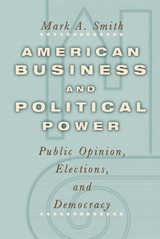
Rather than succumbing to corporate America, Smith argues, representatives paradoxically become more responsive to their constituents when facing a united corporate front. Corporations gain the most influence over legislation when they work with organizations such as think tanks to shape Americans' beliefs about what government should and should not do.


From lobbyists such as Jack Abramoff, to corporate executives, like Enron's Kenneth Lay and Jeffrey Skilling, recent scandals dealing with politics and government have focused only on men at the top. But do these high-profile men accurately represent the gendered make up of corporate-government in the United States?
In this first in-depth look at the changing face of corporate lobbying, Denise Benoit shows how women who have historically worked mostly in policy areas relating to "women's issues" such as welfare, family, and health have become increasingly influential as corporate lobbyists, specializing in what used to be considered "masculine" policy, such as taxes and defense. Benoit finds that this new crop of female lobbyists mobilize both masculinity and femininity in ways that create and maintain trusting, open, and strong relations with those in government, and at the same time help corporations to save and earn billions of dollars.
While the media focuses on the dubious behaviors of men at the top of business and government, this book shows that female corporate lobbyists are indeed one of the best kept secrets in Washington.

This book presents the first large-scale study of lobbying strategies and outcomes in the United States and the European Union, two of the most powerful political systems in the world. Every day, tens of thousands of lobbyists in Washington and Brussels are working to protect and promote their interests in the policymaking process. Policies emanating from these two spheres have global impacts—they set global standards, they influence global markets, and they determine global politics. Armed with extensive new data, Christine Mahoney challenges the conventional stereotypes that attribute any differences between the two systems to cultural ones—the American, a partisan and combative approach, and the European, a consensus-based one.
Mahoney draws from 149 interviews involving 47 issues to detail how institutional structures, the nature of specific issues, and characteristics of the interest groups combine to determine decisions about how to approach a political fight, what arguments to use, and how to frame an issue. She looks at how lobbyists choose lobbying tactics, public relations strategies, and networking and coalition activities. Her analysis demonstrates that advocacy can be better understood when we study the lobbying of interest groups in their institutional and issue context. This book offers new insights into how the process of lobbying works on both sides of the Atlantic.
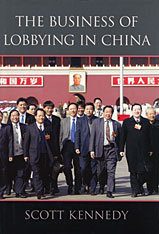
In this timely work, Scott Kennedy documents the rising influence of business, both Chinese and foreign, on national public policy in China.
China's shift to a market economy has made businesses more sensitive to their bottom line and has seen the passage of thousands of laws and regulations that directly affect firms' success. Companies have become involved in a tug of war with the government and with each other to gain national policy advantages, often setting the agenda, providing alternative options, and pressing for a favored outcome.
Kennedy's comparison of lobbying in the steel, consumer electronics, and software industries shows that although companies operate in a common political system, economic circumstances shape the nature and outcome of lobbying. Factors such as private or state ownership, size, industry concentration, and technological sophistication all affect industry activism.
Based on over 300 in-depth interviews with company executives, business association representatives, and government officials, this study identifies a wide range of national economic policies influenced by lobbying, including taxes, technical standards, and intellectual property rights. These findings have significant implications for how we think about Chinese politics and economics, as well as government-business relations in general.
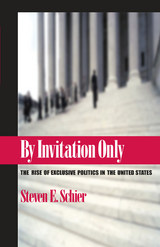
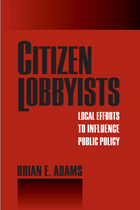
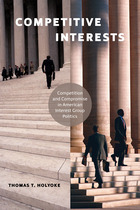
Competitive Interests does more than simply challenge the long-held belief that a small set of interests control large domains of the public policy making landscape. It shows how the explosion in the sheer number of new groups, and the broad range of ideological demands they advocate, have created a form of group politics emphasizing compromise as much as conflict. Thomas T. Holyoke offers a model of strategic lobbying that shows why some group lobbyists feel compelled to fight stronger, wealthier groups even when they know they will lose.
Holyoke interviewed 83 lobbyists who have been advocates on several contentious issues, including Arctic oil drilling, environmental conservation, regulating genetically modified foods, money laundering, and bankruptcy reform. He offers answers about what kinds of policies are more likely to lead to intense competition and what kinds of interest groups have an advantage in protracted conflicts. He also discusses the negative consequences of group competition, such as legislative gridlock, and discusses what lawmakers can do to steer interest groups toward compromise. The book concludes with an exploration of greater group competition, conflict, and compromise and what consequences this could have for policymaking in a representation-based political system.


Lobbyists in Washington aren’t a new phenomenon. Since the early days of the republic, citizens and groups alike have hired professionals to press their interests with lawmakers. However, recent examples of misconduct—like that seen in the Abramoff scandal—highlight the unique ethical challenges this industry faces in the twenty-first century.
Though major scandals happen less frequently than popularly believed, the more pervasive ethics problem is that members of the profession often cut deals that go against their clients' interests. They sacrifice the interests of those they represent in order to curry favor with lawmakers. In The Ethical Lobbyist, Thomas T. Holyoke exposes how current industry regulations fall short of ensuring principled behaviors and may actually incentivize unethical behavior.
Holyoke presents the provocative argument that, in addition to welcoming stronger regulations, lobbyists need to borrow a page from the legal profession and adopt ironclad guarantees of principled representation.
The Ethical Lobbyist puts forth a set of principles and a workable program for implementing reform. The result is a road map to reform that will transform “ethical lobbyist” from an oxymoron to an expectation—and change the industry and our government for the better.

Woodstock launched this project on lobbying in 1998 for three reasons. First, lobbying has grown exponentially during the past twenty years to exercise enormous influence on American politics. It has almost become a new profession in that time, and therefore deserves a new review and evaluation.
Second, lobbying has simultaneously fallen under suspicion and engendered critical resentment in some quarters. Its critics would say it supports "special" (i.e. narrow and well-funded) interests and is oblivious to the general well-being of our democratic life and process.
Third, reputable lobbyists have called, therefore, for a clarification of standards and principles for use within their own ranks and as an explanation to the general public of the goals, objectives, and methods of lobbying to forestall misunderstanding and misjudgment. This clarification would provide the lobbying profession with a normative statement parallel to the codes of conduct and ethical practice of the American Medical Association and the American Bar Association.

With evidence from congressional hearings, personal interviews, oral histories, farm and trade journals, and newspapers, Hansen traces the evolution of farm lobby access in Congress. He chronicles the rise and fall of the American Farm Bureau, the surge and decline of party politics, the incoporation of the commodity lobbies, the exclusion of the consumer lobbies, and the accommodation of urban interests in food stamps.
Brilliantly combining insights from rational choice theory with historical data, Gaining Access is an essential guide for anyone interested in the dynamics of interest group influence.
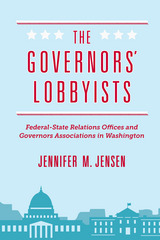
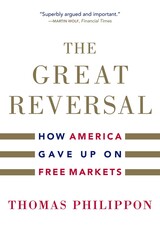
A Financial Times Book of the Year
A ProMarket Book of the Year
“Superbly argued and important…Donald Trump is in so many ways a product of the defective capitalism described in The Great Reversal. What the U.S. needs, instead, is another Teddy Roosevelt and his energetic trust-busting. Is that still imaginable? All believers in the virtues of competitive capitalism must hope so.”
—Martin Wolf, Financial Times
“In one industry after another…a few companies have grown so large that they have the power to keep prices high and wages low. It’s great for those corporations—and bad for almost everyone else.”
—David Leonhardt, New York Times
“Argues that the United States has much to gain by reforming how domestic markets work but also much to regain—a vitality that has been lost since the Reagan years…His analysis points to one way of making America great again: restoring our free-market competitiveness.”
—Arthur Herman, Wall Street Journal
Why are cell-phone plans so much more expensive in the United States than in Europe? It seems a simple question, but the search for an answer took one of the world’s leading economists on an unexpected journey through some of the most hotly debated issues in his field. He reached a surprising conclusion: American markets, once a model for the world, are giving up on healthy competition.
In the age of Silicon Valley start-ups and millennial millionaires, he hardly expected this. But the data from his cutting-edge research proved undeniable. In this compelling tale of economic detective work, we follow Thomas Philippon as he works out the facts and consequences of industry concentration, shows how lobbying and campaign contributions have defanged antitrust regulators, and considers what all this means. Philippon argues that many key problems of the American economy are due not to the flaws of capitalism or globalization but to the concentration of corporate power. By lobbying against competition, the biggest firms drive profits higher while depressing wages and limiting opportunities for investment, innovation, and growth. For the sake of ordinary Americans, he concludes, government needs to get back to what it once did best: keeping the playing field level for competition. It’s time to make American markets great—and free—again.

Synthesizing theory, personal research, and prior studies on interest groups and other lobbies, William P. Browne offers a new, insightful overview of organized political interests and explains how and why they affect public policy.
Drawing on his extensive experience researching interest groups, Browne assesses the impact that special interests have long had in shaping policy. He explains how they fit into the policymaking process and into society, how they exercise their influence, and how they adapt to changing circumstances.
Browne describes the diversity of existing interests-associations, businesses, foundations, churches, and others-and explores the multidimensional tasks of lobbying, from disseminating information through making financial contributions to cultivating the media. He shows how organized interests target not just the public and policymakers but even other interest groups, and how they create policy niches as a survival strategy. He also looks at winnable issues, contrasts them with more difficult ones, and explains what makes the difference.
Groups, Interests, and U.S. Public Policy is a serious study written in a lighthearted tone. It offers political scientists a new theory of how and why interest groups influence public policy while it enlightens students and general readers about how policy is actually shaped in America.

Amid the turbulent swirl of foreign intrigue, external and internal threats to the young nation’s existence, and the domestic partisan wrangling of the 1790s, the United States Congress solidified its role as the national legislature. The ten essays in The House and Senate in the 1790s demonstrate the mechanisms by which this bicameral legislature developed its institutional identity. The first essay sets the scene for the institutional development of Congress by examining its constitutional origins and the efforts of the Founders to empower the new national legislature. The five following essays focus on two related mechanisms—petitioning and lobbying—by which citizens and private interests communicated with national lawmakers.
Although scholars tend to see lobbying as a later nineteenth-century development, the papers presented here clearly demonstrate the existence of lobbyists and lobbying in the 1790s. The final four papers examine other aspects of the institutional development of the House and the Senate, including the evolution of political parties and congressional leadership.
The essays in this collection, the third volume in the series Perspectives on the History of Congress, 1789-1801, originated in a series of conferences held by the United States Capitol Historical Society from 1994 to 2001.
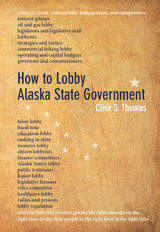
This book starts by helping new lobbyists to think politically, by explaining the structure and operation of state government, the psychology and needs of public officials, and where the power lies in Juneau—who’s got political clout. How to Lobby then moves into the nitty-gritty of a lobbying campaign. It covers the basics of group influence, campaign planning and management, the pros and cons of various group tactics, tips on face-to-face meetings, and the challenges of lobbying day-to-day. In addition to extensive guidance on what to do, this book also emphasizes the things to avoid that will undermine or eliminate a lobbyist’s chances of success. Pragmatic and portable, this book will be valuable to new and professional lobbyists both, and anyone looking for fresh perspectives on this important business.

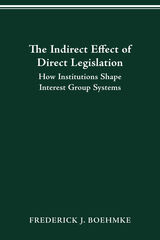
To demonstrate this, the author models the incentives that the initiative process creates for interests to organize and for how they communicate their preferences to policy makers. Interests that represent a broader range of the public are found to gain the most from the option to propose initiatives, implying that the set of organized interests in initiative states should reflect this advantage. Ironically, an effect of direct legislation is to potentially increase the effectiveness of special interest lobbying in state legislatures—in a sense, the opposite of the direct control that gives direct legislation its theoretical appeal. Yet, the clear effect is one of empowering voices that traditionally had very little effect in the legislative process. If greater representation is the goal of direct legislation, it is a clear success, even though that success does not really come in the act of ballot initiatives itself.

This accessible exploration of corporate legitimacy and crime will be important reading for advocates, journalists, students, and anyone interested in the dichotomy between law and legitimacy.
Neva Goodwin is Co-director of the Global Development and Environment Institute at Tufts University.

During the 2008 election season, politicians from both sides of the aisle promised to rid government of lobbyists’ undue influence. For the authors of Lobbying and Policy Change, the most extensive study ever done on the topic, these promises ring hollow—not because politicians fail to keep them but because lobbies are far less influential than political rhetoric suggests.
Based on a comprehensive examination of ninety-eight issues, this volume demonstrates that sixty percent of recent lobbying campaigns failed to change policy despite millions of dollars spent trying. Why? The authors find that resources explain less than five percent of the difference between successful and unsuccessful efforts. Moreover, they show, these attempts must overcome an entrenched Washington system with a tremendous bias in favor of the status quo.
Though elected officials and existing policies carry more weight, lobbies have an impact too, and when advocates for a given issue finally succeed, policy tends to change significantly. The authors argue, however, that the lobbying community so strongly reflects elite interests that it will not fundamentally alter the balance of power unless its makeup shifts dramatically in favor of average Americans’ concerns.
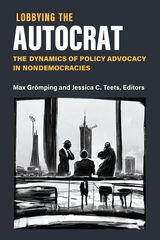
Although authoritarian countries often repress independent citizen activity, lobbying by civil society organizations is actually a widespread phenomenon. Using case studies such as China, Russia, Belarus, Cambodia, Malaysia, Montenegro, Turkey, and Zimbabwe, Lobbying the Autocrat shows that citizen advocacy organizations carve out niches in the authoritarian policy process, even influencing policy outcomes. The cases cover a range of autocratic regime types (one-party, multi-party, personalist) on different continents, and encompass different systems of government to explore citizen advocacy ranging from issues such as social welfare, women’s rights, election reform, environmental protection, and land rights. They show how civil society has developed adaptive capacities to the changing levels of political repression and built resilience through ‘tactful contention’ strategies. Thus, within the bounds set by the authoritarian regimes, adaptive lobbying may still bring about localized responsiveness and representation.
However, the challenging conditions of authoritarian advocacy systems identified throughout this volume present challenges for both advocates and autocrats alike. The former are pushed by an environment of constant threat and uncertainty into a precarious dance with the dictator: just the right amount of acquiescence and assertiveness, private persuasion and public pressure, and the flexibility to change quickly to suit different situations. An adaptive lobbyist survives and may even thrive in such conditions, while others often face dire consequences. For the autocrat on the other hand, the more they stifle the associational sphere in an effort to prevent mass mobilization, the less they will reap the informational benefits associated with it. This volume synthesizes the findings of the comparative cases to build a framework for understanding how civil society effectively lobbies inside authoritarian countries.

Today organized interests fight most of their major battles within coalitions. Whether joining forces to address tobacco legislation or proposed air safety regulations, Washington lobbyists with seemingly little in common are combining their clout to get results.
Kevin Hula here examines why coalition strategies have emerged as a dominant lobbying technique, when lobbyists use them, and how these strategies affect their activities. His is the first book to focus on the formation and use of coalitions by lobbyists, examining the broader scope of interest group coalitions and explaining their roles as institutions of collective leadership, bargaining, and strategy for member organizations.
Combining collective action theory with data gleaned from 130 interviews with lobbyists and interest group leaders in the fields of transportation, education, and civil rights, Hula explores how the use of coalitions differs at various stages of the policy process and with different activities. In the course of his study, he also shows how the communications revolution is changing interest group tactics.
The single most detailed work available on this subject, Lobbying Together offers scholars and students alike a fresh and accessible look at this increasingly important factor in the policy process.

The objective of these interest groups is to influence the EU decision-making, of which they see themselves as a stakeholder. To the existing representative bodies such as the Parliament and the Council, they add their practice of lobbying for a desired outcome by making their interests present or represented at the EU level. In a roundabout way, they contribute to the EU integration and also to its democracy, so long as the following conditions are fulfilled.

Media, Culture and the Environment provides an accessible introduction to key issues and debates surrounding the media politics of risk assessment and the environment. Anderson looks at nature as contested terrain and reveals how news sources use it to compete for our emotions and attention. She shows how framings of risk in relation to the environment are influenced by social, political, and cultural factors, but she also rejects extreme versions of social constructionism.
The book moves beyond traditional disciplinary boundaries by synthesizing recent debates in cultural theory and media studies with key developments in human geography. It offers an in-depth analysis of pressure politics and environmental lobbying groups, while examining the production, transmission and negotiation language of news discourse. The examples, drawn from both Europe and North America, include the tremendous headline controversies over oil spills and killing of baby seals. Difficult issues, clearly surveyed and incisively presented, make this book essential reading for anyone interested in how and why journalists handle environmental news in the ways they do.
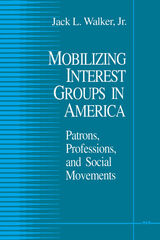

Surveys reveal that a majority of Americans believe government is run for special interests, not public interest. The increased presence and power of lobbyists in Washington and the excesses of PAC and campaign contributions, in-kind benefits, and other favors would seem to indicate a government of weak public servants corrupted by big private-interest groups.
But as Fred McChesney shows, this perspective affords only a partial understanding of why private interests are paying, and what they are paying for. Consider, for example, Citicorp, the nation's largest banking company, whose registered lobbyists spend most of their time blocking legislation that could hurt any one of the company's credit-card, loan, or financial-service operations. What this scenario suggests, the author argues, is that payments to politicians are often made not for political favors, but to avoid political disfavor, that is, as part of a system of political extortion or "rent extraction."
The basic notion of rent extraction is simple: because the state can legally take wealth from its citizens, politicians can extort from private parties payments not to expropriate private wealth. In that sense, rent (that is, wealth) extraction is "money for nothing"--money paid in exchange for politicians' inaction. After constructing this model of wealth extraction, McChesney tests it with many examples, including several involving routine proposals of tax legislation, followed by withdrawal for a price. He also shows how the model applies more generally to regulation. Finally, he examines how binding contracts are written between private interests and politicians not to extract wealth.
This book, standing squarely at the intersection of law, political science, and economics, vividly illustrates the patterns of legal extortion underlying the current fabric of interest-group politics.
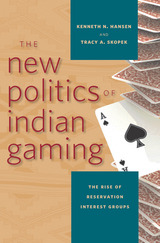
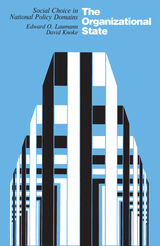
But this says nothing about politics. Professor Lauman and Knoke have asked, in this book, how policies were made, in the period 1977-1980, in the areas of energy and health. The question is a very different one from the question of how the positions of president and Congress are filled.
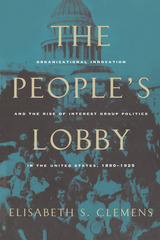
Clemens sheds new light on how farmers, workers, and women invented strategies to circumvent the parties. Voters learned to monitor legislative processes, to hold their representatives accountable at the polls, and to institutionalize their ongoing participation in shaping policy. Closely analyzing the organizational politics in three states—California, Washington, and Wisconsin—she demonstrates how the political opportunity structure of federalism allowed regional innovations to exert leverage on national political institutions.
An authoritative statement on the changes in American politics during the Progressive Era, this book will interest political scientists, sociologists, and American historians.


Based on new evidence from legislative records and other sources, Sanders shows that this tenuous alliance of "producers versus plutocrats" shaped early regulatory legislation, remained powerful through the populist and progressive eras, and developed a characteristic method of democratic state expansion with continued relevance for subsequent reform movements.
Roots of Reform is essential reading for anyone interested in this crucial period of American political development.


Decision makers matching wits with an adversary want intelligence—good, relevant information to help them win. Intelligence can gain these advantages through directed research and analysis, agile collection, and the timely use of guile and theft. Counterintelligence is the art and practice of defeating these endeavors. Its purpose is the same as that of positive intelligence—to gain advantage—but it does so by exploiting, disrupting, denying, or manipulating the intelligence activities of others. The tools of counterintelligence include security systems, deception, and disguise: vaults, mirrors, and masks.
In one indispensable volume, top practitioners and scholars in the field explain the importance of counterintelligence today and explore the causes of—and practical solutions for—U.S. counterintelligence weaknesses. These experts stress the importance of developing a sound strategic vision in order to improve U.S. counterintelligence and emphasize the challenges posed by technological change, confused purposes, political culture, and bureaucratic rigidity. Vaults, Mirrors, and Masks skillfully reveals that robust counterintelligence is vital to ensuring America's security.
Published in cooperation with the Center for Peace and Security Studies and the George T. Kalaris Memorial Fund, Edmund A. Walsh School of Foreign Service, Georgetown University.
READERS
Browse our collection.
PUBLISHERS
See BiblioVault's publisher services.
STUDENT SERVICES
Files for college accessibility offices.
UChicago Accessibility Resources
home | accessibility | search | about | contact us
BiblioVault ® 2001 - 2024
The University of Chicago Press









